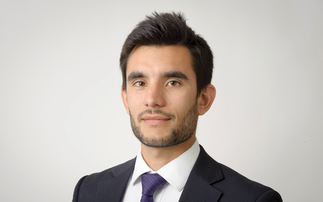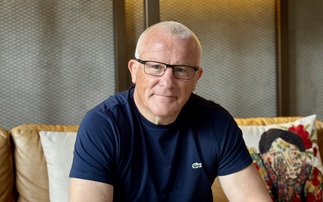
Microfinance is proving more important than ever during COVID-19, both for crisis management and economic recovery. At the same time, providing microloans during this period is more challenging than ever. How are microfinance institutions and banks in emerging markets navigating COVID-19 and its economic impact? How does this affect Triodos Microfinance Fund? Five questions to fund manager Tim Crijns.
Q I can imagine that the impact of COVID-19 is enormous in developing and emerging markets?
"Yes, firstly health-wise. The virus was absolutely rampant, healthcare infrastructure proved to be inadequate in many countries, and vaccination rates are still extremely low.
Moreover, social inequality has increased dramatically. Between rich and poor, but also between men and women. In the area of gender equality, there have been real steps backwards. Children could not go to school, so women often had to stay at home to take care of them. In addition, women in developing countries often have temporary or part-time jobs, which were the first to disappear during the corona crisis."
Q What impact does COVID-19 have for microfinance?
"COVID-19 has underlined the importance of microfinance. Initially, microloans ensured that entrepreneurs could keep their heads above water. Now, microloans are proving crucial to rebuilding local economies. Also, a survey among microfinance clients showed that about 50% of them used their savings to weather the storm. This shows the importance of having access to saving accounts at all.
The financial institutions that we finance through Triodos Microfinance Fund supported local entrepreneurs in several ways. From deferrals of payment to the provision of extra loans to entrepreneurs who wanted to adapt to the new situation. Many handed out packages of face masks and disinfectants, and an Indian microfinance institution helped set up mobile health centres that travelled from village to village.
These are great initiatives, but it was also a very challenging time for microfinance institutions. There was hardly any income, as a large number of entrepreneurs could not repay their loans during the lockdowns. At the same time, many costs, such as the salaries of staff, continued as usual."
Q How did this affect Triodos Microfinance Fund?
"Where appropriate the fund granted microfinance institutions and banks deferment of payment and where necessary it provided additional loans. As the fund typically is not a single investor, we contacted and teamed up with other investors involved, to ensure sufficient liquidity support for the institutions so they could weather the lockdown periods. We also owe this to our investors as the vast majority kept their invested money in the fund. That was crucial to keep trust among all stakeholders in the sector. This positively affected the portfolio performance: the default rate of the fund remains very low for a private debt & equity fund."
Q What about the fund's performance?
"In 2020, Triodos Microfinance Fund reported a negative return, for the first time since its inception in 2009, mainly due to currency developments and equity devaluations. Nevertheless, the return on loans remained positive. This year we are back to positive returns. The fund's year-to-date return (as of 30 September 2021) is 5.67%. The value of foreign currencies is stabilising and the value of the fund's equity stakes is rising.
The upward trend for local economies is expected to continue. Entrepreneurs are in need of new loans to fuel local economies; it is no longer about crisis management, but about economic recovery.
Since the beginning of the year, funding requests from institutions are increasing to meet local demand for credit, resulting in a full pipeline for this year and beyond."
Q What plans and ambitions are on the table for Triodos Microfinance Fund in the coming years?
"As I said, social inequality has drastically increased and microfinance plays a crucial role in addressing this. We have always been and will always remain fully dedicated to our social impact objectives, and a responsible investment approach is at the core of all our processes.
We will also accelerate our focus on investing in fintech for greater financial inclusion. In times of social distancing, digital technology has proven even more important than ever. Triodos Microfinance Fund is building up an investment portfolio in fintech players, for example digital lending platforms such as Lulalend in South Africa and Bien para Bien in Mexico.
Fintech is developing a strong track record in financial inclusion and we see it as an integral component and natural next step in promoting financial inclusion. With our fintech investments we want to contribute to this momentum by improving access to affordable and transparent financial services for small businesses and low-income households.
Triodos IM has published a paper, which explores financial technology as a tool for greater financial inclusion, specifically in emerging and developing markets. Download it here.
Disclaimer:
This is a marketing communication. Please refer to the prospectus and the KID of Triodos Microfinance Fund before making any final investment decisions. An overview of the investor's rights can be found in the prospectus. The value of your investment can fluctuate because of the investment policy. Triodos Microfinance Fund is managed by Triodos Investment Management. Triodos Investment Management holds a license as alternative investment fund manager and UCITS and is under the supervision of the Dutch Authority Financial Markets and the De Nederlandsche Bank.












